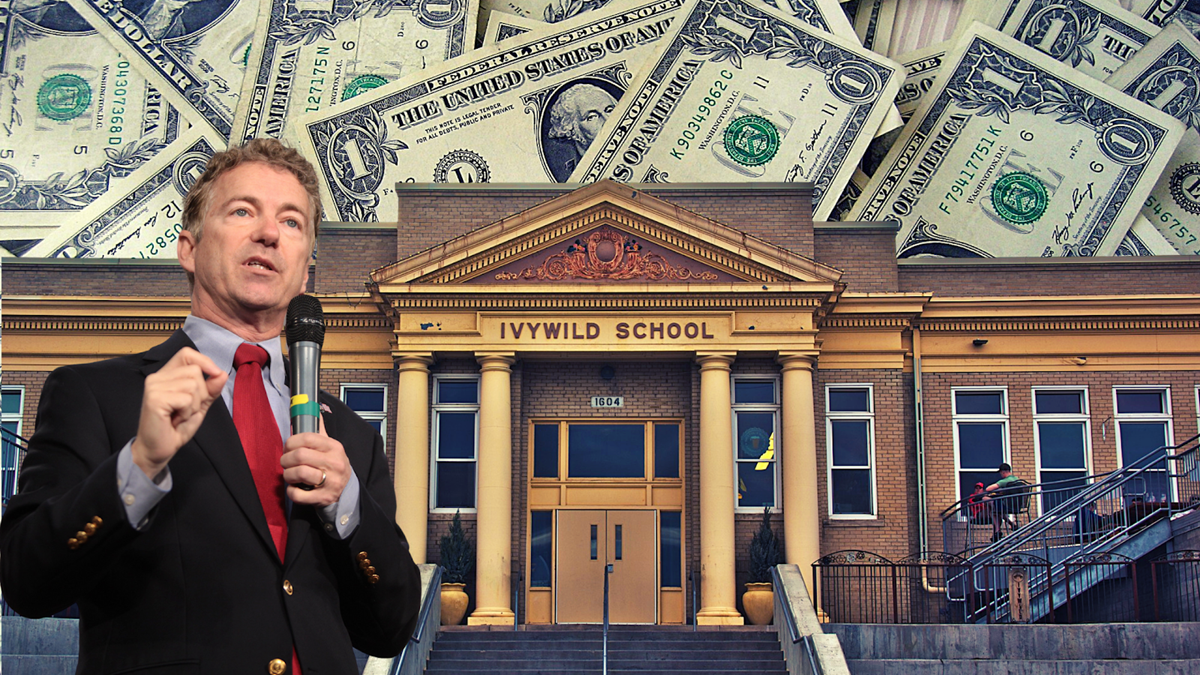Under the status quo, taxpayer dollars fund government schools, not education.
Americans are taxed to provide federal education funding, ostensibly for the education of their children and others, but the money goes to finance public schools regardless of whether those students end up attending them. If families choose to homeschool or send their children to private schools, the taxpayer money marked for their child’s education still goes to the public school, and the family is left to cover the actual cost of their kids’ schooling on their own. This means that in many cases, low-income families have no choice but to send their children to public schools, even if those very schools are failing their students.
The broken system for the allocation of federal education funds was already a problem before the COVID-19 pandemic. However, due to that crisis and sweeping government restrictions, many public schools will remain closed for in-person learning this fall. Some families who have been forced to rely on these schools simply cannot work and pay their bills without the crucial childcare services that go along with educational programs, and their personal circumstances may be such that draconian COVID-19 avoidance efforts are not necessary nor warranted.
Sen. Rand Paul, a Kentucky Republican, just unveiled a new bill that would help give parents and students the flexibility to choose the learning environment that’s right for their family—by ensuring that the distribution of federal funds lets them do so.
Empower parents. Help students. Support their choices and needs. https://t.co/p7d6xg3VcI
— Senator Rand Paul (@RandPaul) August 5, 2020
The SCHOOL Act would alter the structure of federal education funding to allow the allotted taxpayer dollars to follow any given student regardless of whether their family chooses homeschool, private school, or public school. The money could still only be used for proper educational expenses, but this way, the funding would flow to whatever’s best for the student—which is supposed to be the point—not end up in the coffers of public schools by default.
“If the government schools decide not to meet in person in the fall, I think every parent should have the right to take their tax dollars to the school of their choice,” Paul wrote in an op-ed accompanying his bill’s rollout. “The choices would include homeschool, the local public school or another public school that has in-person classes, or a private or parochial school. It’s hard to imagine why anyone would oppose letting parents decide the school of their choice.”
Let’s empower low income students and families with freedom of choice. The Obamas chose private school over DC public. Why can’t you? https://t.co/dKSd2wDFIi
— Kelley Paul (@KelleyAshbyPaul) August 5, 2020
Paul’s bill provides a partial solution to a serious problem plaguing American families amid the current COVID-19 crisis. Some parents are desperate for their kids to go back to school, and have no one in their household who is at risk for COVID-19. (For children, the disease has almost a 0 percent mortality rate. For adults under 40 with no preexisting conditions, the death rate is very low as well.)
Keeping their money stuck in a public school system that isn’t opening this fall isn’t reasonable. These families should be able to take the funding our government has allocated for their child’s education and put it toward homeschooling solutions (like the “pandemic pods” that are sprouting up) or a private school that has decided to reopen, if that’s what they feel is best.
Yet other families may very reasonably decide to not send their kids to any in-person program. They might not feel comfortable with the risks, or they may have an elderly or immuno-compromised person in their household and fear that COVID-19 exposure could have grave consequences. For that family, remote learning is the right decision.
The great thing about Paul’s proposed system is that it supports families in both situations, and empowers them to decide for themselves.
This just in: @RandPaul actually thinks we should decide what to do with our own money. Especially if most parents are having to homeschool their kids this year 💁🏾♀️ https://t.co/AhUgYdqa3c
— Antonia Okafor Cover (@antonia_okafor) August 5, 2020
This aspect is key, because as economic philosopher Friedrich Hayek explained, there is a “knowledge problem” that dooms centralized planning and top-down government efforts. Government bureaucrats simply aren’t familiar enough with the wildly different conditions in differing parts of the country under COVID-19 or the vastly disparate situations different families are in to decide what’s right for every student and school.
They can’t make decisions for the entire country with any degree of competence. Yet if empowered, families can make the right decisions for themselves.
Of course, Rand Paul’s bill only affects federal funds, and most education money is funded at the state and local level. So, the SCHOOLS Act alone can’t completely deliver us an education system that works for students—but it can certainly take us a large step in the right direction.

